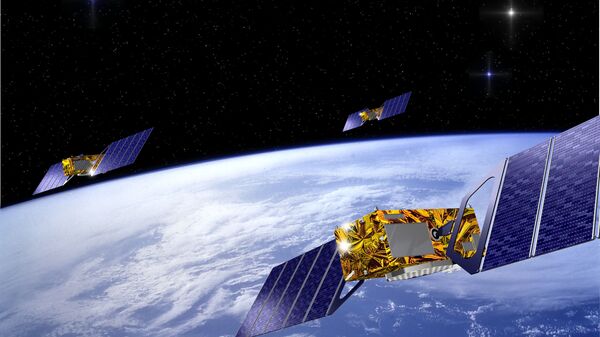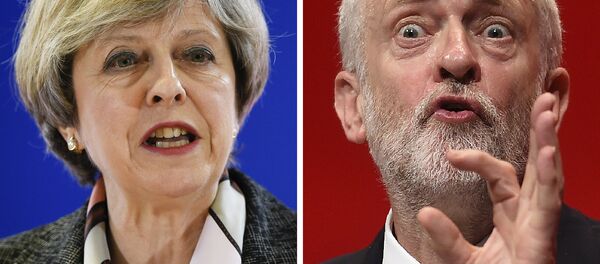May announced on Friday that the UK was pulling out of the EU’s satellite navigation system which was designed to compete with the US GPS system and is due to be launched in 2020 with civilian and military variants, the BBC reported.
READ MORE: Brits Prefer Remaining in EU or Hard Brexit Over PM May's Deal – Poll
The UK had invested £1.2bn in the creation of Galileo out of the £9bn spent. However, earlier on Friday, Brussels said that as a result of Brexit, the UK would not be allowed access to the part of the system intended for use by government agencies, the armed forces, and emergency responders. The UK demanded an exception, saying it was vital to its military and security interests, Sky News reported.
May had declared that the British army will not use Galileo and the UK will instead explore options to build its own satellite-navigation system, securing £92m to look at how it can be done.
“The commission decided that we would be barred from having full aspects of the Galileo programme and so it is right for us to look for alternatives because it would be wrong to put our [armed] services relying on a system on which they couldn’t be sure of,” May told reporters in Buenos Aires while attending the G20 summit, noting that it “would not be in our national interest.”
“We will be discussing our past contributions to the financing of Galileo in the upcoming talks,” a senior UK official said, cited by the Guardian.
While UK Defence Secretary Gavin Williamson noted that the development of a new system would be an opportunity to draw on British skills and expertise in satellite technology, noting that it is “crucial to push ahead with plans for our own world-class, independent satellite system,” other members of May's Cabinet weren’t as pleased with the announcement.
Science Minister Sam Gyimah said the UK’s interests will be “repeatedly and permanently hammered by the EU27 for many years to come”
“As a minister with the responsibility for space technology I have seen first-hand the EU stack the deck against us time and time again, even while the ink was drying on the transition deal. Galileo is a clarion call that it will be 'EU first', and to think otherwise — whether you are a Leaver or Remainer — is at best incredibly naïve,” Gyimah said, as cited by the BBC.
The Galileo project had been in work since 1999, when the European Union embarked on a plan to put together its own network of satellites. The first satellites were put in orbit in 2013.
UK companies have built components for Galileo and one of the project's two Galileo Security Monitoring Centres was previously based in the UK, in Swanwick. The site is now being relocated to Spain.



